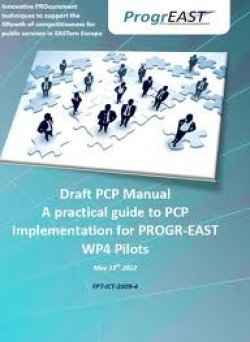
Johnny Miller
"Con-tracts.com" SM
During my 30-year contracts career, I have gradually developed a list of 60 practical contract-drafting tips. As a refresher, I routinely refer to my tip-sheet (as well as other checklists) just before I draft a contract. Additionally, I use this list (as well as other checklists) when I review someone else’s contract. While drafting contracts, there are many things to consider, the most helpful of which are listed below:
.
1. Be precise (accurate, complete and, exact), clear, specific, and focused.
2. Balance precision with simplicity.
3. Use plain English.
4. Avoid jargon.
5. Use sentences with less than 25 words.
6. Prefer short words to long words (avoid unnecessarily complex).
7. Avoid double negatives.
8. Keep subject and verb together.
9. Use active not passive voice (“Buyer terminated the contract”...not...”contract was terminated by Buyer”).
10. Understand the whole design before you begin drafting (outline first for clarity).
11. Sequence logically by chronology of events.
12. Put related provisions together (cohesion).
13. Don’t assume. What is missing? Look for conflicts.
14. Boil a sentence down to its essential point.
15. Use kernel words not long derivatives (“state”...” not … “make a statement”).
16. Eliminate redundancies (“past history”; “future plans”).
17. Avoid doublets/triplets (“right, title, and interest”).
18. Cut unnecessary preambles (“it is important to note”).
19. Minimize prepositions (“of”,”in” and “by”).
20. Avoid noun pile-ups (“DOC computer hardware component regulation”).
21. Use parallel structure (“proposing, drafting, and negotiating contracts”).
22. Careful of "will", "shall", "must" and "may" (will/shall/must = command; may = permissive).
23. Avoid “and/or”.
24. Avoid here-/there- words (herein, therefor, etc).
25. Avoid “said” and “same”.
26. Avoid “witnesseth”.
27. Use “which” and “that” properly (“that” without a comma is restrictive/essential; “which” with a comma is non- restrictive/supplemental. While revising, whenever you spot a "which" that does not follow a comma, odds are it needs to be "that".
28. Three passes on edits...(basics....tighten...fine tune).
29. Cut adverbs by choosing a more precise noun.
30. Cut adjectives by choosing a more precise noun.
31. Cut the non-essential.
32. Avoid sexist language.
33. The entire document counts, not isolated provisions.
34. Contra proferentem (construed against drafter).
35. Specific words control general ones.
36. No Latinisms.
37. When in doubt, punctuate. 38. Punctuate to prevent misreading.
39. Punctuate consecutive adjectives.
40. Punctuation of states (“In Texas we indemnify.” “In Austin, Texas, we indemnify.”).
.
41. Year punctuation (comma after year...”On June 1, 1998, he …” / no comma after year ...”In June 1998 he ...”
.
42. Avoid words with more than one meaning (ambiguity).
43. Sometimes it’s okay to be strategically vague (such as the use of the word “reasonable”).
44. Avoid adjectives before two nouns (“research contracts and grants”).
45. “Rule of Last Antecedent” (qualifying phrases apply to the word/phrase immediately preceding, not to other words/phrases).
46. Avoid shot-gunning to cover every possibility when a single word will do.
47. Arrange words with care.
48. Use familiar concrete words.
49. Brevity.
50. Sleep on what you have written, then attack afresh the next day.
51. Use the correct legal name of the parties in a contract.
52. Repeat only when repetition is necessary to improve clarity.
53. Don't use the word "biweekly" since it has two meanings (i.e., twice a week vs. every other week).
54. Write numbers as both words and numerals such as "ten (10)" to reduce the chance of errors.
55. Contract writing is not creative writing; be clear, direct, and precise, not reflective, provocative or entertaining.
56. Be consistent in using the terms of art like " Licensed Product" and "Licensed Software". Don't call them items, goods, products, etc., elsewhere in the contract.
57. Write as if a judge and jury would have to understand it.
58. Define important words when first used.
59. Consider "what if" scenarios to flush-out issues.
60. When you write "including", consider adding "but not limited to.”
Be sure that others don't describe your contract-drafting as follows: "Construing such conglomerate provisions requires a skill not unlike that called for in the decipherment of obscure palimpsest texts.”



